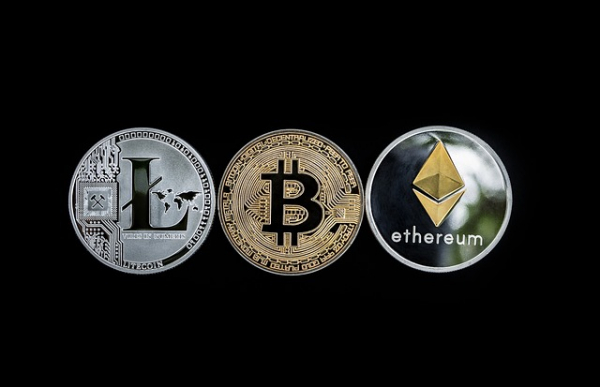
Cryptocurrency, as defined by Investopedia, is a digital or virtual currency protected by complex coding, making it difficult to duplicate or spend twice. Some cryptocurrencies are part of decentralized networks that use blockchain technology, a shared ledger system supported by a diverse group of computers.
One of the key characteristics of cryptocurrencies is that any central authority does not control them, meaning they are not susceptible to manipulation or government interference.
Understanding Cryptocurrency
Investopedia says that Cryptocurrencies are digital or virtual currencies supported by complex coding systems. These currencies allow for secure online payments without the need for intermediaries. These codes include techniques like elliptical curve encryption, public-private key pairs, and hashing functions, which all work together to keep the transactions secure.
They can be obtained through a process called mining or by buying them from exchanges. Not all online stores accept cryptocurrency as a form of payment, and their primary use currently is as a trading tool rather than for retail transactions. They are also used to a limited extent for international money transfers.
The largest and most popular cryptocurrency is Bitcoin, the first and most well-known cryptocurrency coin. Still, many other options are available, such as Ethereum, Tether, Cardano, Dogecoin, Polkadot, and over seventy others. This number is expected to increase. All cryptocurrencies other than Bitcoin are referred to as "altcoins" to differentiate them from Bitcoin.
According to crypto.com, Bitcoin is approximately worth $21,000 as of January 16, 2023. The reason why Bitcoin has value is challenging to comprehend. One explanation is that the supply is limited, and there is currently a high demand for it. Similar to the value of an artist's paintings increasing after they pass away, as their art becomes limited in quantity. Currently, almost 19 million Bitcoins exist, and the maximum amount that will ever be in circulation is 21 million.
Bitcoin and other cryptocurrencies are known to have high volatility in their value. In September 2020, the value of one Bitcoin was $9,813; it peaked at $64,899 in April 2021, and by July 20, 2021, its value dropped to $29,796, and a week later, it was valued at $40,035.
To know how much Bitcoin you own, it is tracked electronically on a blockchain. A blockchain is a digital ledger that is shared among a network of computers and stores information electronically. Blockchains are mainly known for maintaining secure and decentralized records of transactions in cryptocurrency systems like Bitcoin. The blockchain's innovation ensures the security and accuracy of data records and creates trust without the need for a central intermediary
What to Do If The Chruch Receives Crypto as Donation
If a church receives a gift in cryptocurrency, it's recommended to have someone familiar with these transactions. According to UMC Discipleship, If there is no one in the congregation, you can seek advice from the church's bank, a CPA, or an attorney.
The United Methodist Foundation serves the annual conference, or the treasurer can provide guidance. If the church does accept a gift donation of cryptocurrency, it will be treated as a non-cash contribution, similar to a property gift rather than cash. The church should acknowledge the present, but the donor is responsible for documenting the value for income tax deduction purposes.
If the donor claims a deduction of more than $5,000 and brings Form 8283 to the organization for signing to support the tax deduction, the church would need to sign the form recognizing receipt of charitable deduction property.
A church officer's signature on Form 8283 does not imply agreement with the assessed value of the donated property. The church's understanding of the information-reporting requirements imposed by section 6050L on dispositions of the donated property and acknowledgment of receipt of the item detailed in Form 8283 on the date provided are both shown by the church's signature.
For more details, refer to the IRS Form 8283 instructions.
The Best Course of Action
Exchanges happen online only. Although there are others, Coinbase.com is one of the most well-known websites. There are also around 5,000 Bitcoin ATMs, so one might be nearby. Debit cards in the form of bitcoin are also available. Try to estimate the fees when considering where you might exchange your donated Bitcoin for cash that your church can use for service. There are always some costs associated with this.
The best course of action is to exchange or trade the Bitcoin for a Fiat Currency or in Dollars unless your church has a bitcoin expert who can research the optimum time to swap. The IRS may require churches to file Form 8282, Donee Information Return, if they sell, exchange, or otherwise dispose of charitable deduction property (or any portion thereof), such as the sale of virtual currency for real currency, within three years of the date they first received the property, and to provide a copy of the form to the original donor.
For more details, consult the directions on Form 8282. Within 125 days of the cryptocurrency's conversion to dollars, Form 8282 must be submitted.
Related Article: Benedictines of Mary in Kansas City Build a Church Through Bitcoin Donations

















